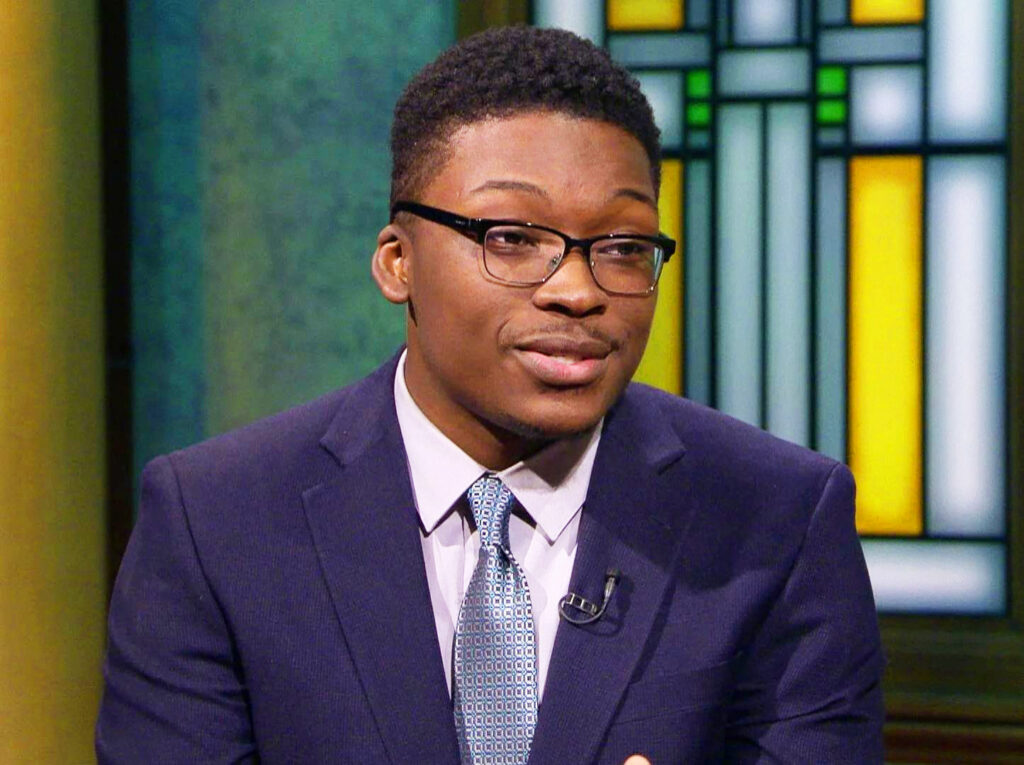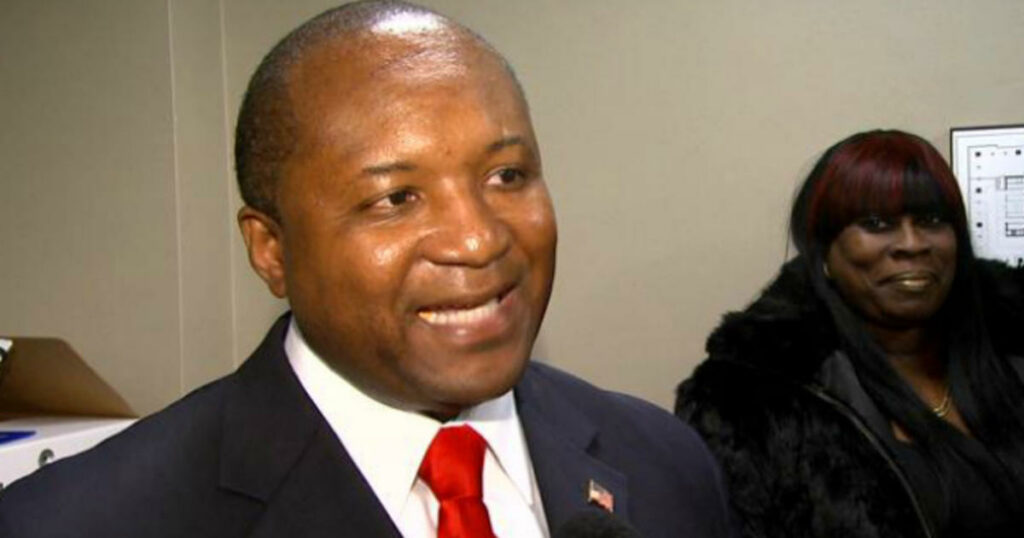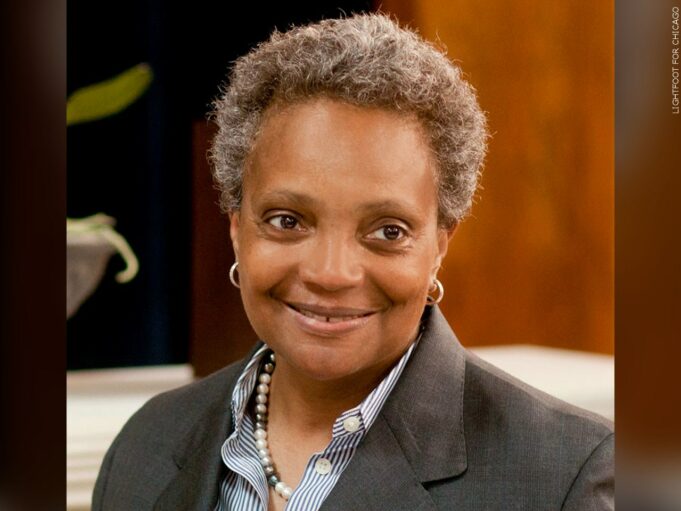CHICAGO—This mayoral election, residents are looking for a leader who will take seriously the issues that disproportionately affect Black residents. Some have complained that as soon as elected officials get in office, Blacks are pushed to the back burner and significant issues such as crime and education are not prioritized and are left to get worse.
During her first campaign, Lori Lightfoot promised to reduce the city’s crime and bring about police reform. According to a 2019 annual Chicago Police report, which is the same year Lightfoot became mayor, Black victims ranked highest, compared to their White counterparts, in all six most common crimes: murder, criminal sexual assault, robbery, aggravated assault and aggravated battery and aggravated battery and assault combined. In a 2021 Chicago Police report, Blacks still ranked the highest in all six crimes.
Mayor Lightfoot’s campaign this year includes doubling down on public safety and police reform but many are displeased with her work thus far. According to a 2021 WGN-TV/Emerson College Polling of Chicago voters, her approval rating overall is just 39 percent and 40 percent of voters said her handling of crime and race relations was poor overall.
The mayor’s office did not respond to The Final Call’s request for comment.
Eric Russell, a police accountability advocate and executive director of the Tree of Life Justice League, said many argue that Mayor Lightfoot cared more about neighborhoods on the northern side of the city once she was elected. Blacks make up 75 percent of the South Side, reports the Chicago Metropolitan Agency for Planning (CMAP).
He said issues such as crime in Black neighborhoods were not prioritized.
“Naturally, it’s the violent crime element and crime not only is a matter of life and death but it also affects our quality of life,” he told The Final Call. “We’re just getting out of a global pandemic, and people don’t want to talk about the Black people who got thrown into poverty. There were more Black homes in foreclosure than anyone else. There were more Black people laid off.”
Mr. Russell said for him to consider a candidate for mayor, there must be a plan in place and the candidate has to have the integrity to follow through with it. “We’re tired of Illinois just being a corrupt state,” he said. “How do we stop being the dog that’s chasing his tail?”

The Final Call contacted the following candidates for the 2023 mayoral election: Representative Kambien Buckner (D-Chicago), Cook County Commissioner Brandon Johnson, U.S. Representative Jesús “Chuy” García (D-Ill.), Alderwoman Sophia King (4th Ward), Alderman Roderick Sawyer (6th Ward), Ja’Mal Green, Willie Wilson, Paul Vallas and Mayor Lightfoot.
Mr. Green connected poor education and disinvestment to high crime rates. He told The Final Call, “The number one issue is public safety. So many years, they’ve used police as the political way to calm people down when you talk about safety. But, when you look at safety like in Lincoln Park, there’s no vacancies when it comes to businesses, they have middle-class jobs, the schools are properly funded because they have a stabilized mechanism with middle-class jobs. This is how you create safety,” said Mr. Green.
The former community activist also said he wants to increase homeownership and help circulate the dollars in Black communities. “We want to create a public bank; we put $28 million dollars in these [other] communities and they don’t even invest in our communities. All that profit that comes from that bank will go to city services,” he continued.
Cassiopeia Uhuru, the co-founder of TheBlackMall.com based in Chicago, also connected disinvestment to high crime rates. She said candidates for the mayoral election should focus on improving the community’s economy and education.
“Their efforts before and after they become mayor should have concentrations in Black neighborhoods to put funding behind the existing businesses that are there,” she said. “There’s no reason why our neighborhoods can’t look like Wicker Park, Lincoln Park. Some of our businesses just need help with general funding. They need more inventory. They need professional development. It would be great if these candidates showed up and supported these businesses, before and after the election.”
Alderman T. Roderick Sawyer said he is concerned that Black and Brown communities in Chicago do not get the same economic opportunities as their White counterparts.
“We know Chicago has systemically disinvested in its people for decades—especially in communities of color,” he said in a statement emailed to The Final Call. “Cuts in education, humanities and sports programs have left our youth without the wisdom and critical-thinking skills to reach their full potential. Severe disparities in economic development on the South and West Sides have created a terrible inequity in opportunity. Black and Brown people have been cut out of job prospects, small business opportunities and the creation of generational wealth.”

In his campaign called #ResetChicago, he proposed a task force and city council committee to take on the economic disparities in the city. “A more fair, equitable and economically just Chicago is a better Chicago for everyone, not just African Americans,” he continued.
Frederick Collins, another candidate for the 2023 mayoral election, grew up on the city’s West Side. He saw firsthand the effects of poor education and how it is attributed to high crime rates. “When a White person does something, it’s on that White person; but when we do something, it’s on our race. As the next mayor of Chicago, we won’t do ‘Black History Month’, we’ll do Black history year around,” he told The Final Call.
“I want to promote through education, again how important family and community and one’s culture really is.”
Homeownership, a top priority
A critical element in rebuilding the Black community is Blacks owning where they live, say residents and candidates.
Since the COVID pandemic, housing affordability has been difficult to secure for Black residents.
According to a report from the Washington D.C.-based Urban Institute, only 39 percent of Black households own their homes compared to their White counterparts, with 74 percent of their households owning their homes.
There have also been major concerns for the city’s South Side over eviction rates and displacement.
Candidate Ja’Mal Green said one of the first things he wants to do in office is increase homeownership among Blacks.
“I want to create 10,000 homeowners each year. I would also remove the red tape on opening up small businesses, we would make your first license free and make it easier and quicker to get a permit,” he said. He believes having more Black homeowners brings more revenue for Black businesses.
“We want to do this all en masse. We have so many career fields that these young people don’t get exposed to. I think our neighborhoods—and I’ll say all the neighborhoods should have a certain level of opportunity to grow and thrive,” he continued.
Mr. Collins believes in the same principle but with a different approach. He believes the best approach is to improve job opportunities so that Black households can hold onto their homes.
“We’ve contributed so much to this country. It truly is our country. I’m going to make sure, under my administration, that 45 percent of all city contracts and city hiring must go to Black and Brown people. When I say ‘due process’, I mean that you’re not already turned down by skin color,” he continued.
Candidate Sawyer wants to see the vacant and abandoned lots that are prevalent in Black communities in the hands of the communities that live by them.
“One important step is to get vacant lots and boarded-up houses off the city’s hands and into the hands of people who want to use them. It will build our communities and make them better, safer places to live,” he said.
“It will encourage more business development to help communities flourish and enhance quality of life. And it will put them back on the tax rolls and generate much-needed revenue to the city.” The Chicago mayoral election is scheduled for February 28, 2023.
—Tariqah Muhammad, Staff Writer













